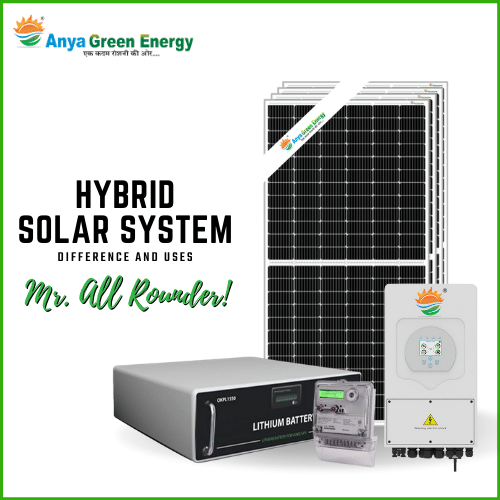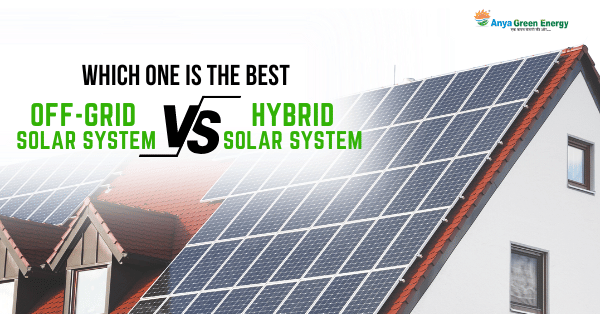HYBRID SOLAR SYSTEM FOR BREAD FACTORY
In a world grappling with the challenges of climate change and dwindling fossil fuel resources, sustainable energy solutions have become paramount for businesses of all sizes. Among these innovative solutions, hybrid solar system for bread factory stand out as a game-changer, especially for energy-intensive industries like bread factories. This blog explores the potential of hybrid solar systems for bread factories, shedding light on why they are the future of sustainable energy in this crucial sector.
GET HYBRID SOLAR SYSTEM FOR BREAD FACTORY

Why choose hybrid solar system for bread factory ?
The choice of energy source is a critical decision for any business, and bread factories are no exception. When it comes to powering these production facilities, a hybrid solar system is an ideal solution. But why should bread factories consider this option?
Energy Reliability: A bread factory operates around the clock, and any interruption in power supply can disrupt production and affect product quality. A hybrid solar system for bread factory combines solar energy with conventional power sources, ensuring a stable and reliable power supply. This minimizes the risk of downtime due to power shortages, keeping the production line moving smoothly.
Cost Savings: The cost of energy is a significant expense for bread factories. Hybrid solar systems help in reducing electricity bills by harnessing the abundant and free energy from the sun. By using solar power during the day and switching to grid power at night or during cloudy periods, businesses can save a considerable amount in energy costs over time.
Environmental Responsibility: Reducing the carbon footprint of a bread factory is not just a matter of corporate social responsibility; it’s also good for public relations and branding. Hybrid solar systems help in mitigating greenhouse gas emissions, demonstrating the commitment of the business to environmental sustainability. Customers and stakeholders increasingly value businesses that take such initiatives.
Importance of hybrid solar system for bread factory
The importance of implementing a hybrid solar system for bread factory cannot be overstated, considering the unique energy needs and challenges this industry faces.
Energy-Intensive Operations: Bread factories are characterized by energy-intensive operations, including mixing, kneading, baking, and packaging. This constant demand for energy requires a dependable and efficient power source. A hybrid solar system ensures a consistent supply of energy while reducing the strain on the grid.
Energy Independence: Dependence on the grid makes businesses vulnerable to power outages, energy price fluctuations, and supply issues. A hybrid solar system enhances energy independence, allowing bread factories to maintain operations even when the grid is unreliable or during peak demand periods.
Mitigating Seasonal Variations: Solar energy production varies with weather conditions and daylight hours. In a hybrid system, the ability to draw power from the grid or energy storage during low-sunlight periods ensures that bread factories remain operational year-round, even in cloudy or rainy seasons.
Benefits of hybrid solar system for bread factory
Now, let’s delve into the numerous benefits that a hybrid solar system can bring to a bread factory:
Significant Cost Savings: A hybrid solar system can reduce electricity bills significantly, which is a substantial financial benefit for any business. Over time, the initial investment in solar panels and infrastructure pays off through reduced operating costs.
Reduced Environmental Impact: By harnessing the power of the sun, bread factories can decrease their carbon footprint and contribute to a cleaner environment. This green energy initiative aligns with sustainability goals and positively impacts the company’s image.
Reliable Power Supply: Uninterrupted power supply is vital for bread factories to maintain consistent production. A hybrid system ensures reliability, preventing losses associated with downtime and production interruptions.
Flexibility and Versatility: The hybrid system allows businesses to switch between solar and grid power as needed. This adaptability ensures that energy demands are met, regardless of weather conditions or time of day.
Energy Storage: Many hybrid systems include energy storage solutions, such as batteries, which store excess solar energy. This stored energy can be used during the night or during periods of low solar generation, enhancing the factory’s energy resilience.
Government Incentives: Various governments and regions offer incentives, subsidies, and tax credits to encourage businesses to adopt solar energy. This can further offset the initial installation costs of a hybrid solar system.
In the quest for sustainable and eco-friendly energy solutions, hybrid solar system for bread factory are a shining example of innovation and adaptability. These systems not only reduce operational costs and environmental impact but also ensure the uninterrupted production of one of the world’s most essential foods.
By choosing a hybrid solar system for bread factory, businesses can harness the power of the sun, save on energy costs, and contribute to a greener, more sustainable future. It’s a win-win situation for both the bread industry and the planet. As the world shifts toward renewable energy, embracing hybrid solar systems for bread factories is a step in the right direction, ensuring a brighter and more sustainable future for all.


